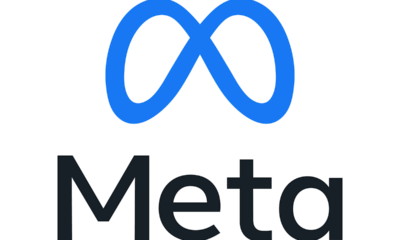Ethics & Policy
Heron Financial brings out AI ethics committee and training programme

Heron Financial has unveiled an artificial intelligence (AI) ethics committee and student cohort.
The mortgage and protection broker’s newly formed AI ethics committee will give employees the opportunity to offer input on how AI is utilised, which ensures that innovation will be balanced with transparency, fairness and accountability.
Heron Financial said the AI training will be a “combination of technical learning with ethical oversight” to ensure the “responsible integration” of the technology into Everglades, its digital platform.
As part of its AI student cohort, a number of members from different teams will be upskilled with an AI development programme.
Matt Coulson (pictured), the firm’s co-founder, said: “I’m proud to be launching our first AI learning and development cohort. We see AI not just as a way to enhance our operations, but as an opportunity to enhance our people.
“By investing in their skills, we’re giving them knowledge they can use in their work and daily lives. Human and technology centricity are part of our core values; it’s only natural we bring the two together.”
How we built a limited company proposition around brokers’ needs
Sponsored by BM Solutions
‘It’s about combining technology and human expertise to raise the bar’
Alongside this, Heron Financial’s Everglades platform will be embedded with AI-driven innovations comprising an AI reporting assistant, an AI adviser assistant and a prediction model, which it said uses basic customer details to predict the likelihood of them gaining a mortgage.
The platform aims to support prospective and existing homeowners by simplifying processes, as well as providing a referral route for clients and streamlining the sales-to-mortgage process to help sales teams and housebuilders.
Also in the pipeline is a new generation of AI ‘agents’ within Everglades, which Heron Financial said will further automate and optimise the whole adviser journey.
Coulson added: “We expect these developments to save hours in the adviser servicing journey, enabling our advisers to spend more time with clients and less time on admin. It’s about combining technology and human expertise to raise the bar for the whole industry.”
At the beginning of the year, Coulson discussed the firm’s green retrofit process in an interview with Mortgage Solutions.
Ethics & Policy
Starting my AI and higher education seminar

Greetings from early September, when fall classes have begun. Today I’d like to share information about one of my seminars as part of my long-running practice of being open about my teaching.
It’s in Georgetown University’s Learning, Design, and Technology graduate program. I’m team teaching it with LDT’s founding director, professor Eddie Maloney, who first designed and led the class last year, along with some great guest presenters. The subject is the impact of AI on higher education.
Every week students dive into one topic, from pedagogy to criticism, changes in politics and economics to using LLMs to craft simulations. During the semester students lead discussions and also teach the class about a particular AI technology. Each student will also tackle Georgetown’s Applied Artificial Intelligence Microcredential.
Midjourney-created image of AI impacting a university.
Almost all of the readings are online. We have two books scheduled: B. Mairéad Pratschke, Generative AI and Education and De Kai, Raising AI: An Essential Guide to Parenting Our Future.
Here’s the syllabus:
Introduction to AI in Higher Education:
Overview of AI, its history, and current applications in academia
Signing up for tech sessions (45 min max) (pair up) and discussion leading spots
Delving deeper into LLMs
Guest speakers: Molly Chehak and Ella Csarno.
Readings:
- AI Tools in Society & Cognitive Offloading
- MIT study, Your Brain on ChatGPT. (overview, since the study is 120 pages)
- Allie K. Miller, Practical Guide to Prompting ChatGPT 5 Differently
Macro Impacts: Economics, Culture, Politics
A broad look at AI’s societal effects—on labor, governance, and policy—with a focus on emerging regulatory frameworks and debates about automation and democracy.
Readings:
Optional: Daron Acemoglu, “The Simple Macroeconomics of AI”
Institutional Responses
This week, we will also examine how colleges and universities are responding structurally to the rise of AI, from policy and pedagogy to strategic planning and public communication.
Reading:
How Colleges and Universities Are Grappling with AI
We consider AI’s influence on teaching and learning through institutional case studies and applied practices, with guest insights on faculty development and student experience.
Guest speaker: Eddie Watson on the AAC&U Institute on AI, Pedagogy, and the Curriculum.
Reading:
Pedagogy, Conversations, and Anthropomorphism
Through simulations and classroom case studies, we examine the pedagogical potential and ethical complications of human-AI interaction, academic integrity, and AI as a “conversational partner.”
Readings:
AI and Ethics/Humanities
This session explores ethical and philosophical questions around AI development and deployment, drawing on work in the humanities, global ethics, and human-centered design.
Guest speaker: De Kai
Readings: selections from Raising AI: An Essential Guide to Parenting Our Future (TBD)
Critiques of AI
We engage critical perspectives on AI, focusing on algorithmic bias, epistemology, and the political economy of data, while challenging dominant narratives of inevitability and neutrality.
Readings:
Human-AI Learning
This week considers how humans and AI collaborate for learning, and what this partnership means for workforce development, education, and a sense of lifelong fulfillment.
Guest Speaker: Dewey Murdick
Readings: TBD
Agentic Possibilities
A close look at emerging AI systems and agents, with attention to autonomy, instructional design, and how educational tools are integrating generative AI features.
Reading
- Pratschke, Generative AI and Education, chapters 5-6
Future Possibilities
We explore visions for the future of AI in higher education, including utopian and dystopian framings, and ask how ethical leadership and equity might shape what comes next.
Readings:
One week with topic reserved for emerging issues
Topic, materials, and exercises to be determined by instructors and students.
Student final presentations
I’m very excited to be teaching it.
Related
Ethics & Policy
A dynamic dialogue with Southeast Asia to put the OECD AI Principles into action

A policy roundtable in Tokyo and a workshop in Bangkok deepened the dialogue between Southeast Asia and the OECD, fostering collaboration on AI governance across countries, sectors, and policy communities.
A dialogue strengthened by two dynamics
Southeast Asia is rapidly emerging as a vibrant hub for Artificial Intelligence. From Indonesia and Thailand to Singapore, and Viet Nam, governments have launched national AI strategies, and ASEAN published a Guide on AI Governance and Ethics to promote consistency of AI frameworks across jurisdictions.
At the same time, OECD’s engagement with Southeast Asia is strengthening. The 2024 Ministerial Council Meeting highlighted the region as a priority for OECD global relations, coinciding with the tenth anniversary of the Southeast Asia Regional Programme (SEARP) and the initiation of the accession processes for Indonesia and Thailand.
Together, these dynamics open new avenues for practical cooperation on trustworthy, safe and secure AI.
In 2025, this momentum translated into two concrete engagement initiatives: a policy roundtable in Tokyo in May and a co-creation workshop for the OECD AI Policy Toolkit in Bangkok in August. Both events shaped regional dialogues on AI governance and helped to bridge the gap between technical expertise and policy design.
Japan actively supported both initiatives, demonstrating a strong commitment to regional AI governance. At the OECD SEARP Regional Forum in Bangkok, Japan expressed hope that AI would become a new pillar of OECD–Southeast Asia cooperation, highlighting the Tokyo Policy Roundtable on AI as the first of many such initiatives. Subsequently, Japan supported the co-creation workshop in Bangkok in August, helping to ensure a regional focus and high-level engagement across Southeast Asia.
The Tokyo roundtable enabled discussions on AI in agriculture, natural disaster management, national strategies and more
On 26 May 2025, the OECD and its Tokyo Office held a regional policy roundtable, bringing together over 80 experts and policymakers from Japan, Korea, Southeast Asia, and the ASEAN Secretariat, with many more joining online. The event highlighted the importance of linking technical expertise with policy to ensure AI delivers benefits responsibly, drawing on the OECD AI Principles and Policy Observatory. Speakers from ASEAN, Thailand, and Singapore shared progress on implementing their national AI strategies,
AI’s potential came into focus through two powerful examples. In agriculture, it can speed up crop breeding and enable precision farming, while in disaster management, digital twins built from satellite and telecoms data can strengthen early warnings and damage assessments. As climate change intensifies agricultural stress and natural hazards, these cases demonstrate how AI can deliver real societal benefits—while underscoring the need for robust governance and regional cooperation, supported by OECD initiatives such as the upcoming AI Policy Toolkit.
The OECD presented activities in international AI governance, including the AI Policy Observatory, the AI Incidents and Hazards Monitor and the Reporting Framework for the G7 Hiroshima Code of Conduct for Developers of Advanced AI systems.
Bangkok co-creation workshop: testing the OECD AI Policy Toolkit
Following the Tokyo roundtable, the OECD, supported by the Foreign Ministries of Japan and Thailand, hosted the first co-creation workshop for the OECD AI Policy Toolkit on 6 August 2025 in Bangkok. Twenty senior policymakers and AI experts from across the region contributed regional perspectives to shape the tool, which will feature a self-assessment module to identify priorities and gaps, alongside a repository of proven policies and practices. The initiative, led by Costa Rica as Chair of the 2025 OECD Ministerial Council Meeting, has already gained strong backing from governments and organisations, including Japan’s Ministry of Internal Affairs and Communications.
Hands-on discussion on key challenges and practical solutions
The co-creation workshop provided a space for participants to work in breakout groups and discuss concrete challenges, explore practical solutions and design effective AI policies in key domains.
Participants identified several pressing challenges for AI governance in Southeast Asia. Designing public funding programmes for AI research and development remains difficult in an environment where technology evolves faster than policy cycles, while the need for large-scale investment continues to grow.
The scarcity of high-quality, local-language data, weak governance frameworks, limited data-sharing mechanisms, and reliance on foreign compute providers further constrain progress, alongside the shortage of locally developed AI models tailored to sectoral needs.
Participants also focused on labour market transformation, digital divides, and the need to advance AI literacy across all levels of society – from citizens to policymakers – to foster awareness of both opportunities and risks.
Participants showcased promising national initiatives, from responsible data-sharing frameworks and investment incentives for data centres and venture capital, to sectoral data platforms and local-language large language models. Countries are also rolling out capacity-building programmes to strengthen AI adoption and oversight, while seeking the right balance between regulation and innovation to foster trustworthy AI.
Across groups, participants agreed on the need to strengthen engagement, foster collaboration, and create enabling conditions for the practical deployment of AI, capacity building, and knowledge sharing.
The instruments discussed during the workshop will feed into the Toolkit’s policy repository, enabling other countries to draw on these experiences and adapt them to their national contexts.
Taking AI governance from global guidance to local practice
The Tokyo roundtable and Bangkok workshop were key milestones in building a regional dialogue on AI governance with Southeast Asian countries. By combining policy frameworks with technical demonstrations, the discussions focused on turning international guidance into practical, locally tailored measures. Southeast Asia is already shaping how global principles translate into action, and with continued collaboration, the OECD AI Policy Toolkit will provide governments in the region—and beyond—with concrete tools to design and implement trustworthy AI.
The authors would like to thank the team members who contributed to the success of these projects: Hugo Lavigne, Luis Aranda, Lucia Russo, Celine Caira, Kasumi Sugimoto, Julia Carro, Nikolas Schmidt and Takako Kitahara.
The post A dynamic dialogue with Southeast Asia to put the OECD AI Principles into action appeared first on OECD.AI.
Ethics & Policy
Elon Musk predicts big on AI: ‘AI could be smarter than the sum of all humans soon…’ |

Elon Musk has issued a striking prediction about the future of artificial intelligence, suggesting that AI could surpass any single human in intelligence as soon as next year (2026) and potentially become smarter than all humans combined by 2030. He made the comment during a recent appearance on the All-In podcast, emphasising both his optimism about AI’s capabilities and his longstanding concern over its rapid development. While experts continue to debate the exact timelines for achieving human-level AI, Musk’s projections underscore the accelerating pace of AI advancement. His remarks also highlight the urgent need for global discussions on the societal, technological, and ethical implications of increasingly powerful AI systems.
Possible reasons behind Elon Musk’s prediction
Although Musk did not specify all motivations, several factors could explain why he made this statement:
- Technological trajectory: Rapid advancements in AI, especially in agentic AI, physical AI, and sovereign AI highlighted in Deloitte’s 2025 trends report, indicate a fast-moving technological frontier.
xAI positioning: As CEO of xAI, Musk may be aiming to draw attention to AI’s capabilities and the company’s role in accelerating scientific discovery.- Historical pattern: Musk has a history of bold predictions, such as suggesting in 2020 that AI might overtake humans by 2025, reflecting his tendency to stimulate public discourse and action.
- Speculative assessment: Musk’s comments may reflect his personal belief in the exponential growth of AI, fueled by increasing computational power, data availability, and breakthroughs in machine learning.
Expert context: human-level AI
While Musk’s timeline is aggressive, it aligns loosely with broader expert speculation on human-level machine intelligence (HLMI). A 2017 MIT study estimated a 50% chance of HLMI within 45 years and a 10% chance within 9 years, suggesting that Musk’s forecast is on the optimistic, yet not implausible, side of expert predictions.Additional surveys support this spectrum of expert opinion. The 2016 Survey of AI Experts by Müller and Bostrom, which included 550 AI researchers, similarly found a 50% probability of HLMI within 45 years and a 10% probability within 9 years. More recent AI Impacts Surveys (2016, 2022, 2023) indicate growing optimism, with the 2023 survey of 2,778 AI researchers estimating a 50% chance of HLMI by 2047, reflecting technological breakthroughs like large language models. These findings show that while Musk’s timeline is aggressive, it remains within the broader range of expert projections.
Potential dangers and opposition views
Musk’s prediction has sparked debate among experts and the public:
- Job losses: AI capable of outperforming humans in most tasks could disrupt labor markets, potentially replacing millions of jobs in sectors from manufacturing to knowledge work.
- Concentration of power:
Superintelligent AI could concentrate power among a few corporations or governments, raising fears about inequality and control. - Safety concerns: Critics warn of unintended consequences if AI surpasses human intelligence without robust safety measures, including errors in decision-making or misuse in military or financial systems.
- Ethical dilemmas: Questions about accountability, transparency, and moral responsibility for AI decisions remain unresolved, fueling ongoing debates about regulation and ethical frameworks.
Societal and generational implications
The rise of superintelligent AI may profoundly affect society:
- Education and skill shifts: New generations may need entirely different skill sets, emphasizing creativity, critical thinking, and AI oversight rather than routine work.
- Economic transformation: Industries could see unprecedented efficiency gains, but also significant displacement, requiring proactive retraining programs and social policies.
- Human identity and purpose: As AI surpasses human capabilities in more domains, society may face philosophical questions about work, creativity, and the role of humans in a highly automated world.
The AI ethics debate
Musk’s comments feed into the broader discussion on AI ethics, highlighting the need for responsible AI deployment. Experts stress balancing innovation with safeguards, including:
- Ethical AI design and transparency
- Policy and regulatory frameworks for high-risk AI systems
- Global cooperation to prevent misuse or unintended consequences
- Public awareness and discourse on AI’s societal impacts
-

 Business2 weeks ago
Business2 weeks agoThe Guardian view on Trump and the Fed: independence is no substitute for accountability | Editorial
-
Tools & Platforms4 weeks ago
Building Trust in Military AI Starts with Opening the Black Box – War on the Rocks
-

 Ethics & Policy1 month ago
Ethics & Policy1 month agoSDAIA Supports Saudi Arabia’s Leadership in Shaping Global AI Ethics, Policy, and Research – وكالة الأنباء السعودية
-

 Events & Conferences4 months ago
Events & Conferences4 months agoJourney to 1000 models: Scaling Instagram’s recommendation system
-

 Jobs & Careers2 months ago
Jobs & Careers2 months agoMumbai-based Perplexity Alternative Has 60k+ Users Without Funding
-

 Podcasts & Talks2 months ago
Podcasts & Talks2 months agoHappy 4th of July! 🎆 Made with Veo 3 in Gemini
-

 Education2 months ago
Education2 months agoMacron says UK and France have duty to tackle illegal migration ‘with humanity, solidarity and firmness’ – UK politics live | Politics
-

 Education2 months ago
Education2 months agoVEX Robotics launches AI-powered classroom robotics system
-

 Funding & Business2 months ago
Funding & Business2 months agoKayak and Expedia race to build AI travel agents that turn social posts into itineraries
-

 Podcasts & Talks2 months ago
Podcasts & Talks2 months agoOpenAI 🤝 @teamganassi






















